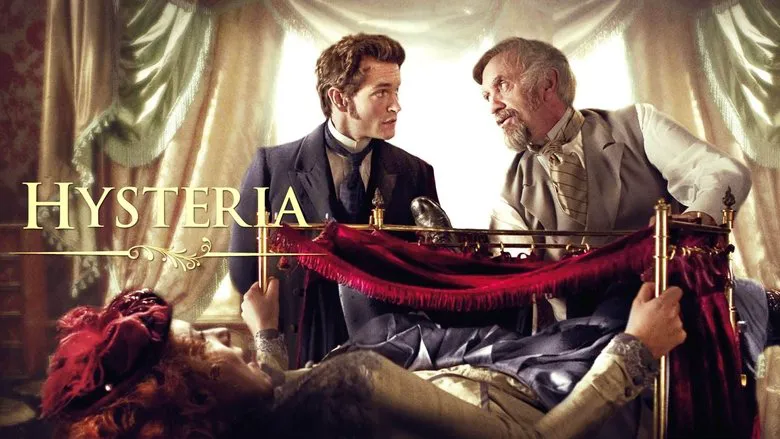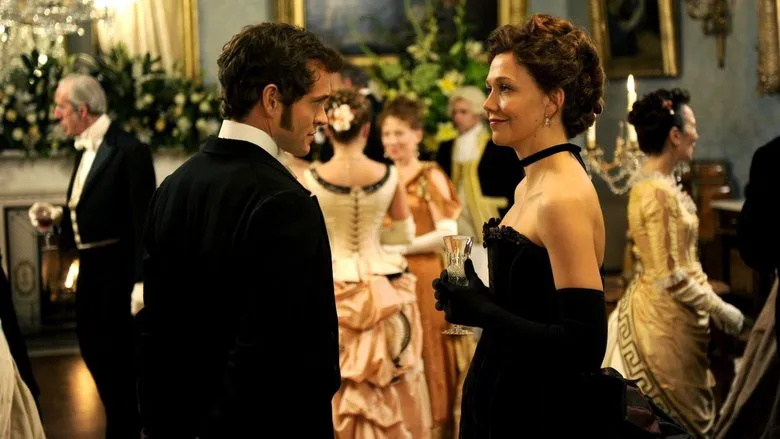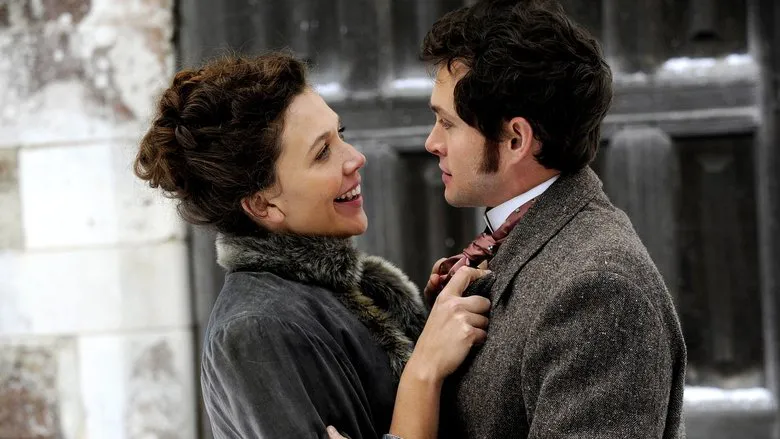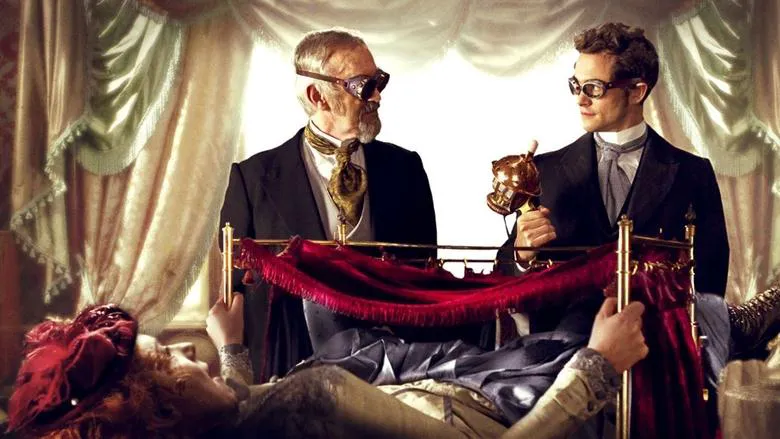Character Analysis in Hysteria: Navigating Victorian Medicine and Social Norms
Tanya Wexler’s Hysteria masterfully uses its ensemble cast to illuminate a peculiar period of medical history and societal transformations in late 19th-century England. Through its central figures, the film explores themes of innovation, the subjugation of women, and the challenging of established norms. Let’s delve into the roles that bring this historical comedy-drama to life.
Dr. Mortimer Granville: The Unlikely Innovator

At the heart of Hysteria is Dr. Mortimer Granville, portrayed by James McAvoy. Granville begins his journey as an earnest, naturally gifted physician working under the demanding Dr. Dalrymple. His early experiences are marked by professional frustration and personal familial tensions, making him an outsider even within the “esteemed” Harley Street clinics where he faces condescension. This initial disenfranchisement acts as a critical catalyst for his later rebellion against convention.
Granville embodies the film’s questioning spirit. He quickly discerns the ineffectiveness of the prevailing “manual stimulation” treatments for hysteria, sensing that these methods merely scratch the surface of his patients’ underlying distress. His growing skepticism and profound concern for his patients drive him to seek more viable solutions, showcasing a deep empathy not shared by all his peers. Under immense pressure, his determination culminates in the development of the first electrically powered vibrator – an invention born from a blend of medical necessity and personal frustration. Granville’s arc is one of intellectual bravery and unconventional ingenuity, challenging the bedrock of Victorian medical practice and paving the way for a revolutionary re-thinking of women’s health.

Dr. Dalrymple: The Guardian of Tradition

Dr. Dalrymple, played by Hugh Dancy, represents the entrenched medical establishment of the Victorian era. As an “esteemed physician” and Dr. Granville’s superior, he embodies the prevailing wisdom of the time, faithfully applying the accepted, albeit ineffective, treatments for hysteria. His character initially serves as a foil to Granville, upholding the strict, sometimes antiquated, professional norms that suffocate innovation.
Dalrymple’s adherence to traditional manual methods highlights the era’s limited understanding of women’s health and the prevailing patriarchal views that often attributed female suffering to elusive, emotionally driven conditions rather than physiological ones. While his methods appear absurd to modern audiences, Dalrymple’s commitment to them underscores the societal and intellectual limitations of his time. His initial resistance to Granville’s unconventional research and inventions further emphasizes the inertia of established institutions, making Granville’s breakthrough all the more significant.
Charlotte Dalrymple: The Symbol of Evolving Womanhood

Charlotte Dalrymple, Dr. Dalrymple’s sister, portrayed by Maggie Gyllenhaal, is a multifaceted character who represents the broader struggles and evolving roles of women in Victorian society. Diagnosis with “chronic illness due to hysteria,” Charlotte is paradoxically both a patient within the system and a vibrant individual challenging its constraints. Her condition throws into sharp relief the societal tendency to pathologize female expression and desire.
Charlotte’s developing relationship with Dr. Granville is central to the film’s romantic and thematic core. Their bond transcends mere romance; it symbolizes the shift away from superficial medical practices and towards a more empathetic, understanding approach to women’s needs. As Granville learns about Charlotte and her experiences, he gains a deeper insight into the real struggles faced by “hysterical” women, fueling his desire for genuine solutions. Charlotte is not merely a love interest; she is an intelligent, spirited woman whose story underscores the societal constraints placed upon women of her time and highlights the dawning era where women began to reclaim agency and redefine their place in a rapidly changing world. Her character embodies the film’s subtle feminist message, showing women as more than just passive recipients of medical (mis)treatment, but as individuals with complex lives and desires.

In Hysteria, these characters collectively paint a vivid picture of a fascinating historical pivot point, where medical innovation intersected with radical societal shifts, all driven by the pioneering spirit and empathetic understanding embodied by its memorable cast.